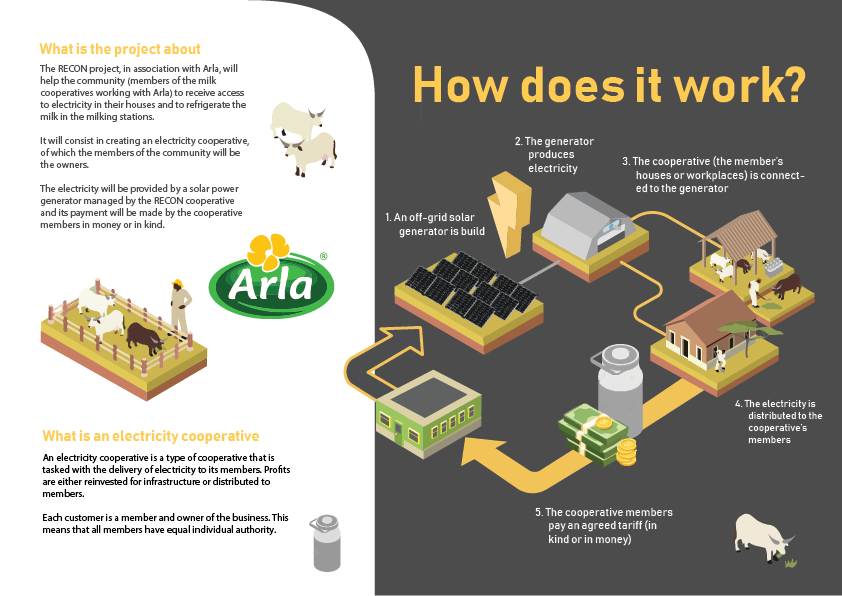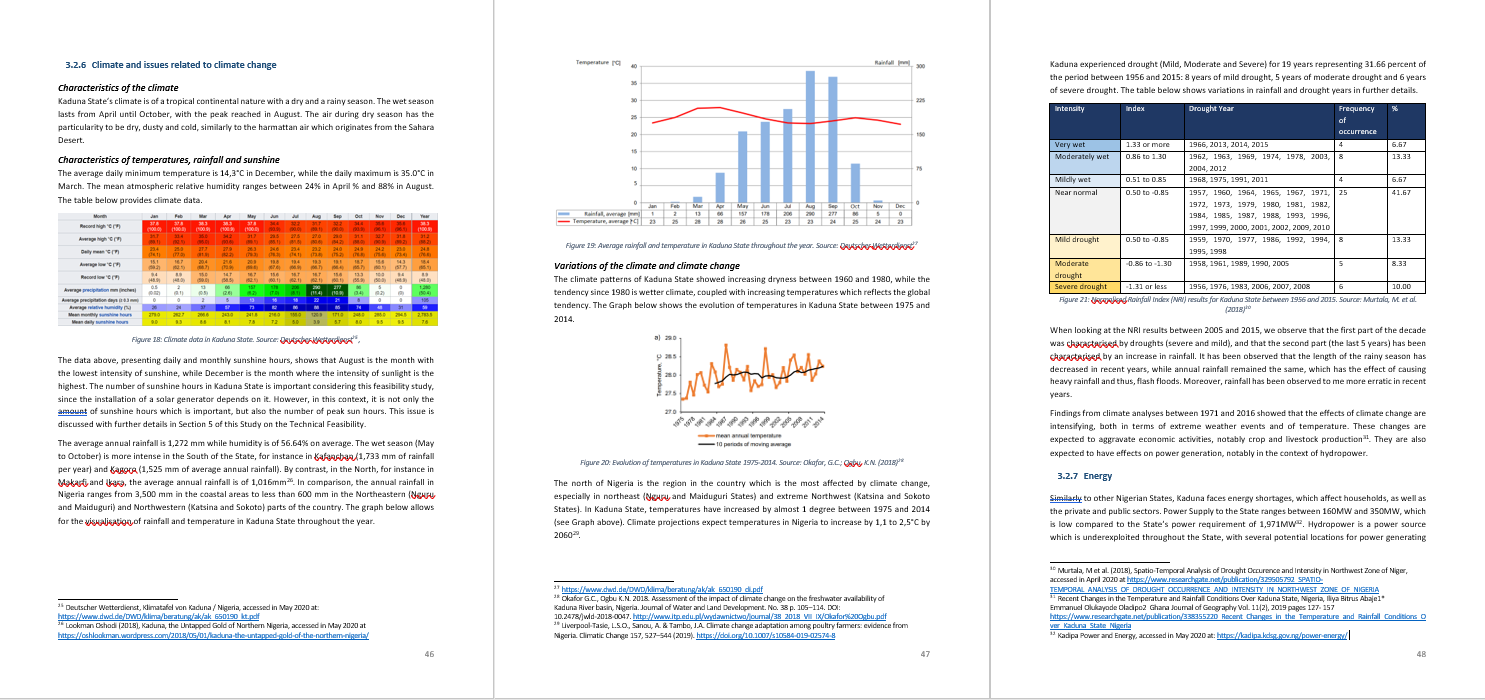The RECoN (Renewable Energy Cooperatives in Nigeria) project, funded by DANIDA under a budget of DKK500,000 was implemented between June 2019 and June 2020 in collaboration with Arla. The project consisted in a feasibility study which aimed at determining the financial, social, environmental and technical viability of a solar mini-grid managed by an energy cooperative. The object of the study was communities of the Kaduna region in Nigeria which main activity as milk farming. The energy cooperative would function as a manager and consumer of the energy produced by a solar mini grid (solar PV+ battery) which would contribute to climate action. The technical feasibility and financial viability were the object of extended analyses, notably through the elaboration of a cost-benefit analysis.

How we did it
The data collection consisted of desk research coupled with field missions. The study includes:
- A Background section providing information about the region, the country, the economic activities, the population characteristics as well as the environmental issues
- A Selection section informing of the interest of the target population and affordability.
- A Legal section describing Nigerian regulations and policies
- A Technical Feasibility section demonstrating the project’s viability in terms of land use, sunlight intensity, and configuration of the target areas, while precising the size of installation as well as its cost as well as consumer tariffs.
- A cost-benefit analysis section showing the financial feasibility of the project.
- A section on Market Assessment and Financing Opportunities presenting different financing opportunities focused on renewable energies and rural electrification in Nigeria.
- A Maintenance and Management Needs section providing inputs for the implementation of a training programme addressed to the managers of the cooperative and with the aim to make the project efficient and sustainable.
Impact
The following elements related to climate change were expected to be impacted by the implementation of such a solution, under the condition that the solar mini-grid and its electricity cooperative are reproduced at larger scale in other regions:
- Elimination of indoor pollution generated by firewood stoves
- Reduction of air and water pollution
- Reduction of deforestation and soil erosion
- Improvement of biodiversity protection

